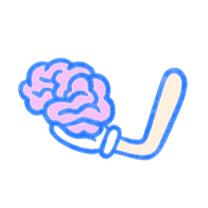CPCE Study Tips: How to Tackle Counseling Theories on the CPCE
One of the most challenging parts of the Counselor Preparation Comprehensive Examination (CPCE) is answering questions related to counseling theories. Whether you’re studying Freud, Rogers, or newer integrative models, theory-based questions require more than simple memorization—they require application.
Here’s how to approach theory questions confidently and boost your chances of a first-time pass.
Understand the Theories Covered on the CPCE
The CPCE covers the major theoretical orientations used in counseling, including:
Psychoanalytic (Freud)
Founded by Sigmund Freud, this theory emphasizes unconscious motives, early childhood experiences, and internal conflicts. Key components include the id, ego, and superego; defense mechanisms; and psychosexual development. The therapeutic process involves bringing repressed thoughts to consciousness through techniques like free association and dream analysis.
Person-Centered (Rogers)
Developed by Carl Rogers, this humanistic approach centers on the belief that individuals have an innate tendency toward growth and fulfillment. Therapy focuses on providing a nonjudgmental, empathetic environment with unconditional positive regard and congruence from the counselor to foster self-actualization.
Cognitive-Behavioral (Beck, Ellis)
This approach combines cognitive and behavioral strategies to address dysfunctional thoughts and behaviors. Aaron Beck’s Cognitive Therapy targets distorted thinking patterns, while Albert Ellis’s Rational Emotive Behavior Therapy (REBT) focuses on identifying and changing irrational beliefs that lead to emotional distress.
Existential (Frankl, Yalom)
Existential therapy, influenced by Viktor Frankl and Irvin Yalom, explores themes such as meaning, freedom, isolation, and mortality. It encourages clients to confront these existential givens and take responsibility for creating purpose in their lives despite inherent anxieties.
Gestalt (Perls)
Founded by Fritz Perls, Gestalt therapy emphasizes present awareness and personal responsibility. It focuses on the “here and now” and encourages clients to integrate fragmented parts of the self through experiential techniques like the empty chair exercise.
Adlerian (Adler)
Alfred Adler’s approach centers on the importance of social interest, lifestyle, and goal orientation. It views behavior as purposeful and motivated by a desire for significance and belonging. Therapy involves understanding a client’s early family experiences and mistaken beliefs to foster more adaptive ways of living.
Begin by reviewing each theory’s founder, key concepts, and treatment goals. Use flashcards or summaries to lock in core ideas.
Practice With CPCE Case Scenarios
Theory questions on the CPCE often appear in the form of short vignettes. For example:
“A client says she feels empty and without purpose. She’s questioning the meaning of her life after her children left for college. A counselor working from which theoretical orientation would focus on personal responsibility and finding meaning through suffering?”
Knowing theory definitions won’t cut it—you need to apply the theory to real-world counseling scenarios. In this case, an existential approach would be the best fit.
Use CPCE prep resources that offer real-world case study questions to practice spotting key clues.
Compare and Contrast Similar Theories
Some theories overlap or have similar terminology. Be especially mindful of:
CBT vs. REBT
Similarities:
- Both are forms of cognitive-behavioral therapy that address dysfunctional thinking and promote behavioral change.
- They use structured, goal-oriented interventions and often include homework and skills training.
Differences:
- CBT (Cognitive Behavioral Therapy), primarily developed by Aaron Beck, emphasizes identifying and challenging automatic thoughts and cognitive distortions to influence emotions and behaviors.
- REBT (Rational Emotive Behavior Therapy), developed by Albert Ellis, is more philosophical and targets irrational beliefs (often expressed in absolutist terms like “should,” “must,” or “always”) to reduce emotional distress and promote rational thinking.
Existential vs. Person-Centered
Similarities:
- Both are humanistic therapies that emphasize personal growth, self-awareness, and the therapeutic relationship.
- They view clients as capable of making choices and creating meaning in their lives.
Differences:
- Existential therapy (e.g., Frankl, Yalom) focuses on universal human concerns like freedom, responsibility, meaning, death, and isolation. The goal is to help clients confront existential anxieties and live authentically.
- Person-Centered therapy (Carl Rogers) centers on the actualizing tendency and the idea that clients thrive in an environment of unconditional positive regard, empathy, and congruence. It is less directive and avoids interpreting client experiences.
Gestalt vs. Psychodynamic
Similarities:
- Both recognize the influence of past experiences on current behavior and aim to increase client self-awareness.
Differences:
- Gestalt therapy (Fritz Perls) is experiential and present-focused. It emphasizes awareness, responsibility, and integration of thoughts, feelings, and actions. Techniques like the empty chair are common.
- Psychodynamic therapy (derived from Freud’s psychoanalysis) is insight-oriented and examines unconscious conflicts, defense mechanisms, and early childhood relationships. It typically involves interpretation and a longer therapeutic process.
Understanding subtle differences—like the focus on irrational beliefs in REBT versus automatic thoughts in CBT—can help you avoid tricky distractors. Check out our study guide on counseling theories.
Use Active Study Tools in CPCE Prep
Maximize your study time with:
- CPCE practice questions and mock exams that offer detailed explanations
- Group study sessions where you explain theories aloud
- Visual aids like theory comparison charts or timelines
Use these tools to break up your study routine and reinforce knowledge through different formats.
Theory-based questions are a core part of the CPCE—and they don’t have to be intimidating. Focus on understanding, applying, and analyzing theories through realistic practice questions. The more you study theories in context, the more prepared you’ll be on exam day.
Test Your CPCE Ethics Knowledge With Pocket Prep
Pocket Prep’s CPCE® Prep offers scenario-based practice aligned with the eight CACREP core areas. Strengthen your understanding of counseling concepts through realistic, real-life applications. Build confidence with interactive question formats, reinforcing key knowledge and improving your test-day performance.

